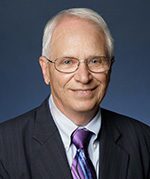Advances in technologies for production and facilities are being driven by the development of unconventional resources and the need for more-efficient and -reliable operations. Considerable progress is being made, for example, on the design and performance of wellbore-inflow-control devices. The objective of this technology is to control both the volume and the character of fluids entering an extended-length wellbore. Both passive and autonomous devices are now available from a number of suppliers. Field experience with this technology was the subject of 10% of the papers in this year’s survey of publications and presentations.
Pipeline technology continues its rapid evolution with a focus on the safe operation of, and the early detection of breaks and leaks in, long-distance lines. The environmental hazards associated with unplanned fluid losses from material failures or unwelcome human intervention make the deployment of acoustic monitoring technologies increasingly desirable and economically viable. In some geographical areas, strong environmental and safety concerns about pipelines will most likely favor the installation of such technologies on any line passing through urban or other sensitive environments.
With low oil and gas prices being a continuing drag on our industry, a significant amount of work was reported on field-optimization and operations-improvement (i.e., cost-reduction) technology. Authors worldwide described their efforts to reduce unplanned shutdowns, lower maintenance costs, improve operational reliability, and squeeze more barrels out of existing wells by developing field-optimization models.
One interesting development associated with production optimization is the use of nanotechnologies to address issues ranging from the control of rock wettability characteristics to the development of fluids with improved heat-transfer characteristics. These applications are moving the field of nanomaterials from the character of “science projects” to emerging or commercial technologies.
Finally, the trend toward the increased use of modeling and simulation technologies, which was identified in this feature last year, continues unabated. More than 25% of the papers reviewed for this year’s feature were concerned with the development of models and simulations or were associated with their use and validation. The emphasis was heavy on the generation of models and simulations that were simple to use, were computationally efficient, and that generated short-term realizable cost savings. One interesting paper described the development of a “fuzzynistic” model for more accurate predictions of flow patterns and pressure losses in pipelines, a critical topic for the design and operational control of surface facilities.
This Month's Technical Papers
Optimized Design of Autonomous Inflow-Control Devices for Gas and Water Coning
Deployment of a Remote Acoustic Monitoring System for Pipeline-Asset Integrity
A Study of Wettability-Alteration Methods With Nanomaterials Application
Recommended Additional Reading
IPTC 17977 Performance of Autonomous-Inflow-Control Completion in Heavy-Oil Reservoirs by Eltazy Eltaher, Heriot-Watt University, et al.
SPE 174812 Fuzzynistic Models for Multiphase-Flow-Pattern Identification by Florentina Popa, Halliburton, et al.
SPE 174746 CFD Study for Heat Transfer and Flow Characteristics of Nanofluid in a Flat-Tube Heat Exchanger by Mohamed Elsebay, Gempetco, et al.

Ted Frankiewicz, SPE, has more than 30 years of experience with oilfield process systems and produced-water treatment. He holds a PhD degree in physical chemistry from the University of Chicago. Frankiewicz holds 15 patents. His experience includes hands-on operations, equipment design and manufacturing, and process engineering. Frankiewicz has worked for Occidental Petroleum, Unocal, Natco Group, and SPEC Services. At Unocal, he was responsible for developing water-treatment systems for the Gulf of Thailand to remove mercury and arsenic as well as residual oil from produced water. At SPEC Services, Frankiewicz designed equipment and process systems for, and diagnosed performance issues with, facilities and water-treatment systems for major and independent operators. He was an SPE Distinguished Lecturer in 2009–10 and is a member of the JPT Editorial Committee.

